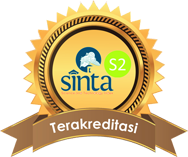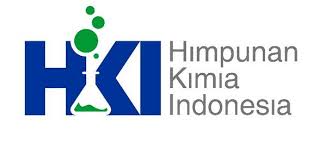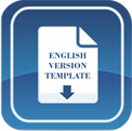Development of Interactive E-Workbook Based on Peer-Led Team Learning on Collaboration Skills and Critical Thinking in Basic Chemistry Concept
DOI:
https://doi.org/10.15575/jtk.v7i2.19750Keywords:
collaboration skill, critical thinking skill, e-workbook, peer-led team learningAbstract
Many students struggle to understand chemistry because it is abstract, conceptual, and involves numerous mathematical operations. Collaboration skills are needed for students to develop collaborative and critical thinking as part of 21st century life skills. This study aims to develop an interactive e-workbook based on PLTL (Peer-Led Team Learning) that meets the criteria of being valid, practical, and effective against collaboration and critical thinking skills. This research is an ADDIE-based development research with analysis, design, development, implementation, and evaluation stages. Limited trials were conducted on students in basic chemistry classes. The validation results show that e-workbook is valid, practical, and effective. The results of limited trial showed that collaboration skills improved in the good category with average score is 75%, and critical thinking skills improved in the medium category with average score is 0.33. It shows that the interactive e-workbook based on the PLTL model can improve collaboration and critical thinking skills and can be used to solve problems in group discussions with the help of an expert leader.
References
Aima, Z., & Rahima, R. (2020). Pengembangan Buku Kerja Pengantar Dasar Matematika Berbasis Konstruktivisme. Journal of Medives : Journal of Mathematics Education IKIP Veteran Semarang, 4(1), 161. https://doi.org/10.31331/medivesveteran.v4i1.961
Alfian, A., Hamid, M., & Suhardi, I. (2019). Pengembangan Media Pembelajaran Aplikasi Augmented Reality Berbasis Android Menggunakan Unity untuk Pembelajaran Struktur Atom Senyawa Organik Hidrokarbon. Indonesian Journal of Educational Studies, 21(2), 123–131. https://doi.org/10.26858/ijes.v21i2.8642
Anwar, B., Munzil, & Hidayat, A. (2017). Pengaruh Collaborative Learning Dengan Teknik Jumping Task Terhadap Keterampilan Berpikir Kritis Dan Hasil Belajar Siswa. Jurnal Pembelajaran Sains, 1(2), 15–25. Retrieved from http://journal2.um.ac.id/index.php/jpsi/article/view/647
Anwar, Y. A. S., & Hariantini, H. (2019). Penerapan Model Peer Led Team Learning Untuk Meningkatkan Hasil Belajar dan Sikap Siswa Terhadap Kimia. Jurnal Pijar Mipa, 14(1), 13–17. https://doi.org/10.29303/jpm.v14i1.999
Apriono, D. (2013). Pembelajaran Kolaboratif: Suatu Landasan untuk Membangun Kebersamaan dan Keterampilan. Jurnal Pendidikan Luar Sekolah, 17(1), 292-304.. Retrieved from https://journal.uny.ac.id/index.php/diklus/article/view/2987
Apriyanti, M. E., & Syahid, S. (2021). Peran Manajemen Waktu dan Kedisiplinan Dalam Mempengaruhi Hasil Belajar Optimal. Equilibrium: Jurnal Pendidikan, 9(1), 68–76. Retrieved from https://journal.unismuh.ac.id/index.php/equilibrium/article/view/4346
Ardiyansyah, A., Junaidi, E., & Hadisaputra, S. (2019). Pengaruh Penerapan Model Pembelajaran Kooperatif Tipe Student Team Achievement Division (STAD) Berbantuan Lembar Kerja Siswa (LKS) Terhadap Hasil Belajar Kimia. Chemistry Education Practice, 2(2), 44. https://doi.org/10.29303/cep.v2i2.1396
Arianti, A. (2017). Urgensi lingkungan belajar yang kondusif dalam mendorong siswa belajar aktif. Didaktika Jurnal Kependidikan, 11(1), 41–62. https://doi.org/10.30863/didaktika.v11i1.161
Biggers, M., Yilmaz, T., & Sweat, M. (2009, March). Using collaborative, modified peer led team learning to improve student success and retention in intro cs. In Proceedings of the 40th ACM technical symposium on Computer science education, 9-13. https://doi.org/10.1145/1508865.1508872
Bramaje, G. P., & Espinosa, A. A. (2013). Peer-Led team learning approach : Effects on students conceptual understanding and attitude towards chemistry. International Journal of Learning and Teaching, 5(2), 55–77. Retrieved from http://archives.un-pub.eu/index.php/ijlt/article/viewArticle/2845
Carlson, K., Celotta, D. T., Curran, E., Marcus, M., & Loe, M. (2016). Assessing the impact of a multi-disciplinary peer- led-team learning program on undergraduate STEM education. Journal of University Teaching and Learning Practice, 13(1). https://doi.org/10.53761/1.13.1.5
Changwong, K., Sukkamart, A., & Sisan, B. (2018). Critical thinking skill development: Analysis of a new learning management model for Thai high schools. Journal of International Studies, 11(2), 37–48. https://doi.org/10.14254/2071-8330.2018/11-2/3
Cracolice, M., & Deming, J. (2005, December 20). Peer-led team learning: Promoting conceptual understanding and reasoning ability [Online Conference]. Winter 2005 CONFCHEM: Trends and New Ideas in Chemical Education https://confchem.ccce.divched.org/sites/confchem.ccce.divched.org/files/2005WinterConfChemP2.pdf
Dinatha, N. M., & Kua, M. Y. (2019). Pengembangan Modul Praktikum Digital Berbasis Nature of Science (NOS) Untuk Meningkatkan Higher Order Thinking Skill (HOTS). Journal of Education Technology, 3(4), 293. https://doi.org/10.23887/jet.v3i4.22500
Eren-Sisman, E. N., Cigdemoglu, C., & Geban, O. (2018). The effect of peer-led team learning on undergraduate engineering students’ conceptual understanding, state anxiety, and social anxiety. Chemistry Education Research and Practice, 19(3), 694–710. https://doi.org/10.1039/c7rp00201g
Frey, R. F., Fink, A., Cahill, M. J., McDaniel, M. A., & Solomon, E. D. (2018). Peer-Led Team Learning in General Chemistry I: Interactions with Identity, Academic Preparation, and a Course-Based Intervention. Journal of Chemical Education, 95(12), 2103–2113. https://doi.org/10.1021/acs.jchemed.8b00375
Gosser, D. K., Strozak, V. S., & Cracolice, M. S. (2001). Peer-led team learning. General chemistry. Upper Saddle River, NJ: Prentice Hall.
Gultom, A. A., & Muchtar, Z. (2020). Pengembangan E-Worksheet Terintegrasi Pemecahan Masalah Pada Materi Laju Reaksi. Jurnal Inovasi Pembelajaran Kimia, 2(1), 16–20. https://doi.org/10.24114/jipk.v2i1.16741
Herowati, & Azizah, L. F. (2019). Pengembangan Buku Kerja Media Pembelajaran IPA. LENSA (Lentera Sains): Jurnal Pendidikan IPA, 9(2), 64–81. https://doi.org/10.24929/lensa.v9i2.71
Hidayanti, E., Rudyat, L., Savalas, T., & Ardhuha, J. (2020). Keterampilan Kolaborasi : Solusi Kesulitan Belajar Siswa SMA dalam Mempelajari Kimia. Seminar Nasional Pendidikan Inklusif PGSD UNRAM 2020, 1–7. https://doi.org/10.24929/lensa.v9i2.71
Kotobee. (2021, October). Interactive Ebooks and Libraries. Kotobee Services. Retrieved from https://witsa.org/wp-content/uploads/2021/10/Kotobee-Platform-Whitepaper-2021-Nahla-Ibrahim.pdf
Lamina, O. G. (2021). Peer-Led Team Learning (PLTL), Student Achievement and Engagement in Learning Chemistry. International Journal of Quality in Education, 5(2), 1-26. Retrieved from https://dergipark.org.tr/en/pub/ijqe/issue/62879/954527
Lewis, S. E. (2011). Retention and reform: An evaluation of peer-led team learning. Journal of Chemical Education, 88(6), 703-707. https://doi.org/10.1021/ed100689m
Mardhiyah, R. H., Aldriani, S. N. F., Chitta, F., & Zulfikar, M. R. (2021). Pentingnya Keterampilan Belajar di Abad 21 sebagai Tuntutan dalam Pengembangan Sumber Daya Manusia. Lectura: Jurnal Pendidikan, 12(1), 29–40. https://doi.org/10.31849/lectura.v12i1.5813
Mufida, L., Subandowo, M. S., & Gunawan, W. (2022). Pengembangan E-Modul Kimia Pada Materi Struktur Atom Untuk Meningkatkan Hasil Belajar. JIPI (Jurnal Ilmiah Penelitian Dan Pembelajaran Informatika), 7(1), 138–146. https://doi.org/10.29100/jipi.v7i1.2498
Nuralifah, R. N., & Hidayah, R. (2020). Profil Keterampilan Pemecahan Masalah Peserta Didik dan Penerapan Strategi Ideal Problem Solving Berbantuan Lembar Kegiatan Peserta Didik (LKPD) di SMA. In Prosiding Seminar Nasional Kimia 2020, 144–153. Retrieved from https://kimia.fmipa.unesa.ac.id/wp-content/uploads/2021/01/Prosiding-SNK-2020-rev-compressed.pdf#page=160
Nurwahidah, N., Samsuri, T., Mirawati, B., & Indriati, I. (2021). Meningkatkan Keterampilan Kolaborasi Siswa Menggunakan Lembar Kerja Siswa Berbasis Saintifik. Reflection Journal, 1(2), 70-76. https://doi.org/10.36312/rj.v1i2.556
Pazos, P., Micari, M., & Light, G. (2010). Developing an instrument to characterise peer-led groups in collaborative learning environments: Assessing problem-solving approach and group interaction. Assessment and Evaluation in Higher Education, 35(2), 191–208. https://doi.org/10.1080/02602930802691572
Purba, F. J., Sinaga, K., Sitinjak, D. S., Tahya, C. Y., & Karnelasatri, K. (2020). Peran Tutor dalam Proses Pembelajaran dengan Metode Berorientasi pada Tutee (Bermain, Diskusi, Ceramah). Journal of Educational Chemistry (JEC), 2(1), 9-17. https://doi.org/10.21580/jec.2020.2.1.5728
Quitadamo, I. J., Brahler, C. J., & Crouch, G. J. (2009). Peer-Led Team Learning: A Prospective Method for Increasing Critical Thinking in Undergraduate Science Courses. Spring, 18, 29–39. Retrieved from https://ecommons.udayton.edu/cgi/viewcontent.cgi?article=1042&context=dpt_fac_pub
Redhana, I. W. (2019). Mengembangkan Keterampilan Abad Ke-21 Dalam Pembelajaran Kimia. Jurnal Inovasi Pendidikan Kimia, 13(1), 2239–2253. Retrieved from https://journal.unnes.ac.id/nju/index.php/JIPK/article/view/17824
Safrida, L. N., Ambarwati, R., & Albirri, E. R. (2017). Partisipasi Mahasiswa dalam Pembelajaran Kooperatif Berdasarkan Lesson Study. Jurnal Edukasi, 4(3), 54–58. https://doi.org/10.19184/jukasi.v4i3.6304
Sanchez, C. S, Fernandez Rivas, S., & Olivares Moral, S. (2014). Collaborative learning supported by rubrics improves critical thinking. Journal of the Scholarship of Teaching and Learning, 15(1), 10–19. https://doi.org/10.14434/josotl.v15i1.12905
Saviyanah, E. N., Susilowati, S. M. E., & Linuwih, S. (2017). Pengembangan Workbook Sains untuk Meningkatkan Keterampilan Proses dan Hasil Belajar Siswa SMP. Journal of Primary Education, 6(1), 50-56. Retrieved from https://journal.unnes.ac.id/sju/index.php/jpe/article/view/14596
Setiyanti, S. W. (2012). Membangun Kerja Sama Tim (Kelompok). Jurnal Stie Semarang (Edisi Elektronik), 4(3), 59–65. Retrieved from https://jurnal3.stiesemarang.ac.id/index.php/jurnal/article/view/161
Smith, J., Wilson, S. B., Banks, J., Zhu, L., & Varma-Nelson, P. (2014). Replicating Peer-Led Team Learning in cyberspace: Research, opportunities, and challenges. Journal of Research in Science Teaching, 51(6), 714–740. https://doi.org/10.1002/tea.21163
Snyder, J. J., & Wiles, J. R. (2015). Peer led team learning in introductory biology: Effects on peer leader critical thinking skills. PLoS ONE 10(1). https://doi.org/10.1371/journal.pone.0115084
Stephenson, N. S., Miller, I. R., & Sadler-Mcknight, N. P. (2019). Impact of Peer-Led Team Learning and the Science Writing and Workshop Template on the Critical Thinking Skills of First-Year Chemistry Students. Journal of Chemical Education, 96(5), 841–849. https://doi.org/10.1021/acs.jchemed.8b00836
Tania, L., & Fadiawati, N. (2015). The development of interactivee-book based chemistry representations referred to the curriculum of 2013. Jurnal Pendidikan IPA Indonesia, 4(2), 164–169. Retrieved from http://repository.lppm.unila.ac.id/22747/
Tegeh, I. M., Jampel, I. N., & Pudjawan, K. (2014). Model Penelitian Pengembangan. Yogyakarta: Graha Ilmu.
Teknowijoyo, F., & Marpelina, L. (2021). Relevansi Industri 4.0 dan Society 5.0 Terhadap Pendidikan Di Indonesia. Educatio: Jurnal Ilmu Kependidikan, 16(2), 173–184. https://doi.org/10.29408/edc.v16i2.4492
Ãœce, M., & Ceyhan, Ä°. (2019). Misconception in Chemistry Education and Practices to Eliminate Them: Literature Analysis. Journal of Education and Training Studies, 7(3), 202-208. https://doi.org/10.11114/jets.v7i3.3990
Waridah, W. (2016). Berkomunikasi Dengan Berbahasa Yang Efektif Dapat Meningkatkan Kinerja. JURNAL SIMBOLIKA: Research and Learning in Communication Study (E-Journal), 2(2), 231–239. https://doi.org/10.31289/simbollika.v2i2.1036
Widoyoko, E. P. (2012). Teknik Penyusunan Instrumen Penelitian. Yogyakarta: Pustaka Pelajar.
Wilson, S. B., & Varma-Nelson, P. (2016). Small Groups, Significant Impact: A Review of Peer-Led Team Learning Research with Implications for STEM Education Researchers and Faculty. Journal of Chemical Education, 93(10), 1686–1702. https://doi.org/10.1021/acs.jchemed.5b00862
Yuberti. (2014). Teori Pembelajaran dan Pengembangan Bahan Ajar dalam Pendidikan. Bandar Lampung: Anugrah Utama Raharja.
Yudhanta, V. W., Susanti, M. I., & Rustamti, M. I. (2021). The Implementation Of Stad–Type Coperative Learning Model To Improve Students’ Critical Thinking And Collaborative Skills. Jurnal PAJAR (Pendidikan Dan Pengajaran), 5(4), 1019–1027. http://dx.doi.org/10.33578/pjr.v5i4.8441
Zubaidah, S., Corebima, A. D., & Mistianah. (2015). Asesmen Berpikir Kritis Terintegrasi Tes Essay. Proceeding Symposium on Biology Education. Retrieved from https://www.researchgate.net/publication/322315188_Asesmen_Berpikir_Kritis_Terintegrasi_Tes_Essay
Downloads
Published
How to Cite
Issue
Section
Citation Check
License
Authors who publish with this journal agree to the following terms:
- Authors retain copyright and grant the journal right of first publication with the work simultaneously licensed under a Creative Commons Attribution-ShareAlike that allows others to share the work with an acknowledgement of the work's authorship and initial publication in this journal.
- Authors are able to enter into separate, additional contractual arrangements for the non-exclusive distribution of the journal's published version of the work (e.g., post it to an institutional repository or publish it in a book), with an acknowledgement of its initial publication in this journal.
- Authors are permitted and encouraged to post their work online (e.g., in institutional repositories or on their website) prior to and during the submission process, as it can lead to productive exchanges, as well as earlier and greater citation of published work (See The Effect of Open Access).









